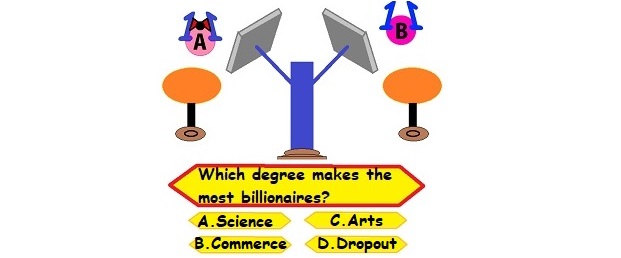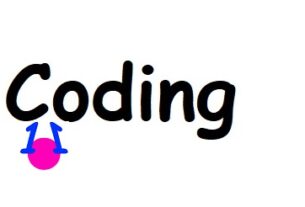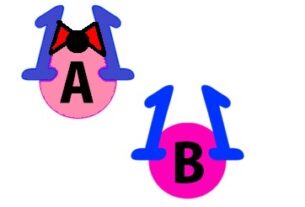New education policy 2020 is a very welcome move. India’s education system gets an overhaul after 34 years when the Union Cabinet approved a new National Education Policy on July 29, 2020.
New education policy 2020 highlights
- Education sector to get 6% of GDP, earlier it was 1.7%
- No hard separation of streams for students
- National Testing Agency (NTA) to offer common entrance exam
- Importance of board exam to be reduced, exam can be conducted twice a year
- Coding to be taught from class 6 onwards
- Medium of instruction will be the local/ regional language until at least Grade 5
- E-content in regional language not just English and Hindi
- New Pedagogical (5+3+3+4) and curricular structure
- Multiple entry and exit programme
- Ministry of Human Resource Development has been renamed as Ministry of Education
- High performing Indian universities will be encouraged to set up campuses in other countries.
- Selected universities like those from among the top 100 universities in the world will be facilitated to operate in India.
- National Committee for integration of vocation Education -Lok Vidya
- National Curricular and pedagogical framework to be developed by NCERT
- Financial Autonomy to be given to around 45,000 affiliated colleges
- School complexes to be used for adult education courses after school hours.
- More focus on vocational studies in school- level.
- NIOS to develop high quality modules for Indian Sign Language
- Indian Sign Language to be standardised across the country
- Pre- school section in Kendriya Vidyalayas
- NCC wings in secondary and higher secondary schools under Ministry of Defence
- Free boarding facilities in JNV
- Dedicated unit for digital and online learning
- Minimum qualification for teaching – 4 year integrated B.Ed degree
- HECI- Common regulatory body for entire higher education
- Various new provisions for children with disabilities
- 360 degree holistic report card for students
- Variable models for board exams – annual, semester, modular exams
- Tech- based option for adult learning through apps, TV channels etc
- Preparatory class Balavatika for children below the age of 5
- Nutrition and health cards, regular health check-ups for school students
No hard separation of streams for students, I like this point the most.
So far Indian higher education had been a rigid system that has not given an opportunity to the student to explore new avenues or subjects. I like the subject of history but I couldn’t pursue it after my 10th as I had to choose a science stream. But I am glad that there is no hard separation of arts and sciences in the new education policy. This policy aims to give students increased flexibility and choice of subjects to study across the arts, humanities, sciences, sports, and vocational subjects.
There is a common stereotype: Only engineering/medical students are studying hard and brilliant and will get success while studying commerce and arts are easy and their students are mediocre. ( May not be for Metros like Mumbai or Delhi but within rest of India this kind of stereotype still prevails.) In reality, anyone can be successful if he is passionate about his field.
India’s Top 30 Richest Billionaires In 2020 by Forbes.
- Mukesh Ambani – (Engineering) ICT University of Mumbai
- Gautam Adani – (Dropout) (Commerce) Gujarat University
- Hinduja Brothers*** Family
- Pallonji Mistry – (Engineering) Imperial College, London
- Uday Kotak – (Commerce) Sydenham College University of Mumbai
- Siv Nadar – (Engineering)PSG College of Technology, Coimbatore Anna University
- Radhakishan Damani – (Dropout) (Commerce) University of Mumbai
- Godrej Family***Family
- Laxmi Mittal* – (Commerce) St. Xavier’s College University of Calcutta
- Kumar Mangalam Birla – (Commerce) H.R. College of Commerce and Economics University of Mumbai
- Bajaj Family***Family
- Cyrus S. Poonawalla – (Commerce) Brihan Maharashtra College of Commerce, Pune University
- Burman Family***Family
- Sunil Mittal – (Arts/Science) Arya College, Ludhiana, Panjab University
- Dilip Shanghvi – (Commerce) Bhawanipur Education Society College University of Calcutta
- Madhukar Parekh – (Engineering) ICT University of Mumbai
- Azim Premji – (Engineering) Standford University
- Nusli Wadia – (Engineering) University of Florida, USA
- Benu Gopal Bangur – (Commerce) Calcutta University
- Savitri Jindal – (Dropout)
- Gurbachan Singh Dhingra – (Arts/Science) Delhi University & Kuldip Singh Dhingra – (Arts/Science) Delhi University
- Rahul Bhatia (Engineering) University of Waterloo, Kapil Bhatia
- Ashwin Dani – (Engineering) ICT University of Mumbai
- Harsh Mariwala – (Commerce) Sydenham College University of Mumbai
- Kushal Pal Singh – (Science) Meerut College, UP, Chaudhary Charan Singh University
- M. A. Yusuff Ali – (Dropout)
- Sudhir Mehta – (Commerce) Gujarat University & Samir Mehta – (Commerce) Gujarat University
- Hasmukh Chudgar – (Pharmacy) Gujarat University
- Anil Rai Gupta – (Arts) SRCC, Delhi University, Vinod Gupta
- Karsanbhai Patel – (Science) Gujarat University
(*Laxmi Mittal is still holding an Indian passport. )
Another point, IIT is believed to be the holy grail of an Indian Education system especially for engineering. Of course, if you study from IITs then you will get an exceptional initial boost/campus placement, better infrastructure and environment than any other Indian engineering college and very strong alumni network but failing to get into IITs has literally zero impact on your future professional life. Campus placement is very short term goal while in long term goal your college tag or your branch doesn’t matter, only your passion and hard-work matter.
| UG Stream | Branch | Number |
| Science | Engineering | 8 |
| Science | 5 | |
| Pharmacy | 1 | |
| Commerce | 9 | |
| Arts | 4 | |
| Dropout | 4 |
Apart from this another point that caught my eye is Students of Class 6 will get to learn coding as part of school curricula in a bid to impart 21st-century skills.
Russian students dominate the ACM International Collegiate Programming Competition(ACM ICPC) over the past years. The ACM ICPC is considered as the “Olympics of Programming Competitions”. It is quite simply, the oldest, largest, and most prestigious programming contest in the world. There is a whole system and culture of programming in Russia. It all begins at school-level with many cities holding their own training camps. Many of Russians students start doing coding at school and invest a lot of time into competitive programming. They share a very serious attitude towards training and preparation (for the ICPC). Since 2000, students from Russia have won the ICPC 14 times, and they’ve won the championship eight years in a row. Being an Indian, obviously I want an Indian team to win the ICPC contest but also know that the change won’t happen overnight, so teaching coding from Class 6 is a superb move and reward improvement. With a little push to get started earlier, I think we can win the race and the gold.
| Country | Wins |
| United States | 17 |
| Russia | 14 |
| China | 4 |
| Canada | 2 |
| Poland | 2 |
| Germany | 1 |
| Czech Republic | 1 |
| Australia | 1 |
| New Zealand | 1 |
| Year | ICPC Winners country |
| 2019 | Russia |
| 2018 | Russia |
| 2017 | Russia |
| 2016 | Russia |
| 2015 | Russia |
| 2014 | Russia |
| 2013 | Russia |
| 2012 | Russia |
| 2011 | China |
| 2010 | China |
| 2009 | Russia |
| 2008 | Russia |
| 2007 | Poland |
| 2006 | Russia |
| 2005 | China |
| 2004 | Russia |
| 2003 | Poland |
| 2002 | China |
| 2001 | Russia |
| 2000 | Russia |
| 1999 | Canada |
| 1998 | Czech Republic |
| 1997 | United States |
| 1996 | United States |
| 1995 | Germany |
| 1994 | Canada |
| 1993 | United States |
| 1992 | Australia |
| 1991 | United States |
| 1990 | New Zealand |
| 1989 | United States |
| 1988 | United States |
| 1987 | United States |
| 1986 | United States |
| 1985 | United States |
| 1984 | United States |
| 1983 | United States |
| 1982 | United States |
| 1981 | United States |
| 1980 | United States |
| 1979 | United States |
| 1978 | United States |
| 1977 | United States |



